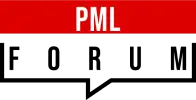Originally named the “Citizens’ Protection (Against Online Harm) Rules, 2020”, the rules were devised following a September 2019 Islamabad High Court verdict berating the Pakistan Telecommunication Authority (PTA) for failing to frame relevant laws under Section 37 of the PECA law.
Owing to criticism from digital and human rights activists, civil society, journalists, and strong opposition from the Asia Internet Coalition (AIC), the federal government had initially formed a consultative committee to take all stakeholders on board.
On November 2, the IHC had ordered PTA to issue the new rules within 90 days. The government notified the rules on November 18, with stakeholders saying they were completely bypassed as they were being finalised by the authorities.
What are the rules?
Defining a social media company as “any person that owns or manages online systems for the provision of social media”, the rules create legal liability on individuals associated with the tech company rather than holding the company responsible. They also place internet service providers (ISP) on a par with tech companies in terms of liability.
Section 4 states that any content against (i) the glory of Islam, (ii) integrity, security, and defence of Pakistan, (iii) public order, and (iv) decency and morality can be removed/ blocked. Clause 2 says the rules will prevail and take precedence over “any contrary Community Guidelines” issued by a service provider.
Section 5 states that a complaint can be filed by any person/ their guardian, ministry, division, attached department, subordinate office, provincial or local department or office, law enforcement agency or intelligence agency, or a company owned by the government.
Under Clause 5, the identity of the complainant and the reported content shall remain “confidential”.
Section 6 clause 6 makes it mandatory for social media companies and ISPs to retain information line traffic data linked to the blocked content if asked by the PTA. Section 7 gives them between six to 24 hours to abide by the authority’s bidding.
Section 8 gives PTA the power to block “entire online systems or any services provided by such service providers”.
Under Section 9 (1) the social media companies and ISPs have been directed to issue community guidelines. Adding on to it, clause 2 states that these guidelines “shall inform the user of the online system not to host, display, upload, modify, publish, transmit update or share any online content that belongs to another person and to which the user does not have any right.”
“This is [content that is] blasphemous, defamatory, obscene, pornographic, paedophilic, invasive of another’s privacy, violates or affects religious, cultural, ethnical sensitive of Pakistani or harms minor in any way, impersonates another person or threatens the integrity, security, or defence of Pakistan or public order or causes incitement to any offence under PECA.”
Clause 3 asks them to deploy appropriate mechanisms to identify online content that needs to be blocked/ removed under the rules. Under clause 4, the social media companies “shall not knowingly host, display, upload, publish, transmit, update or share any online content barred under the rules”.
Under clause 5(a), social media companies with over 500,000 users have to register with the Pakistan Telecommunication Authority within nine months while (b) and (c) directs them to establish a registered office and appoint a focal person based in Pakistan.
The rules also ask social media companies and ISPs to establish one or more database servers in the country under clause 5(d) while clause 7 requires them to provide “decrypted readable and comprehensible information” to the Federal Investigation Agency.
Under Section 9 clause 10, the PTA is empowered to impose a penalty of up to Rs500 million on service providers and social media companies.

